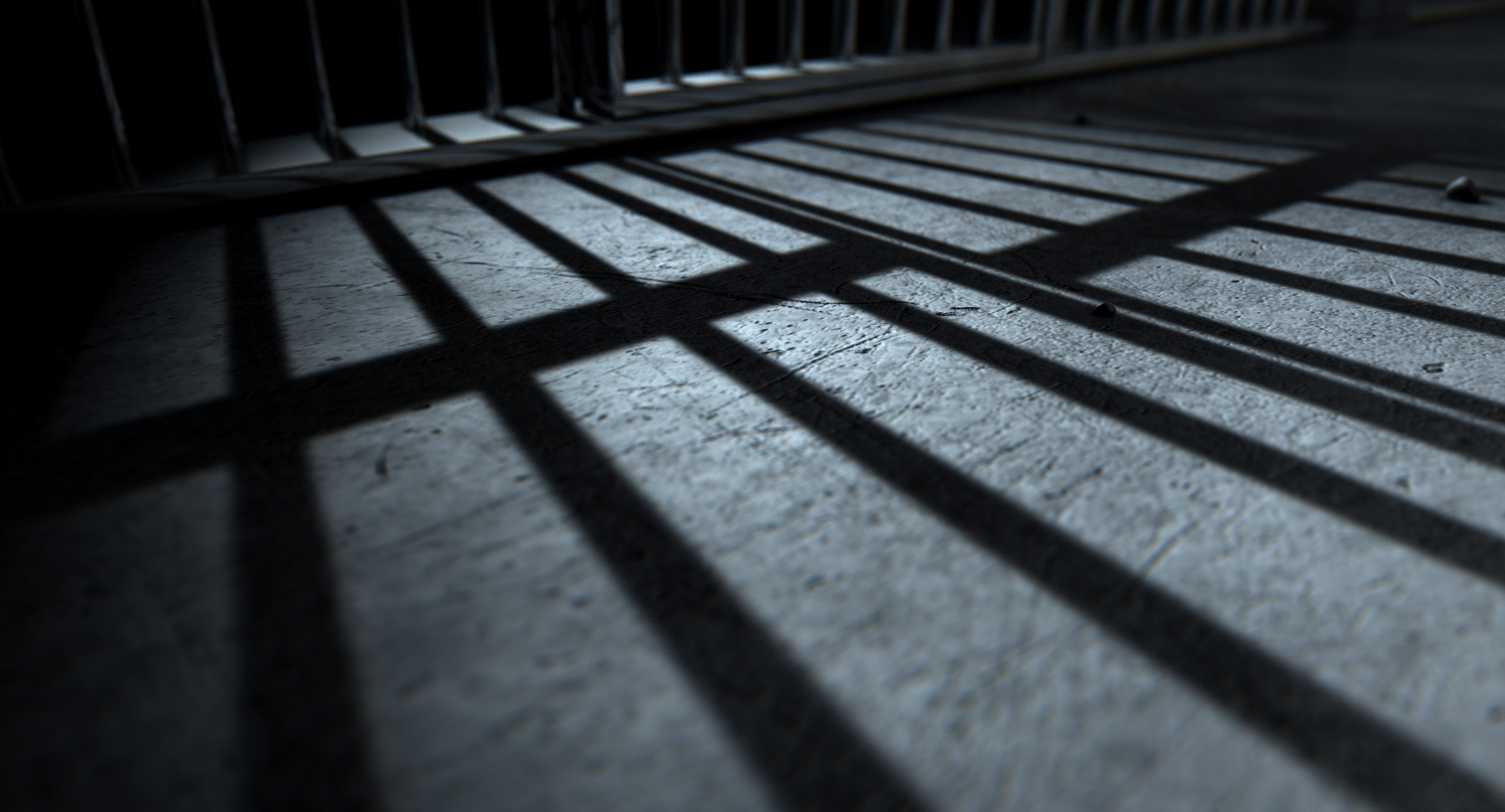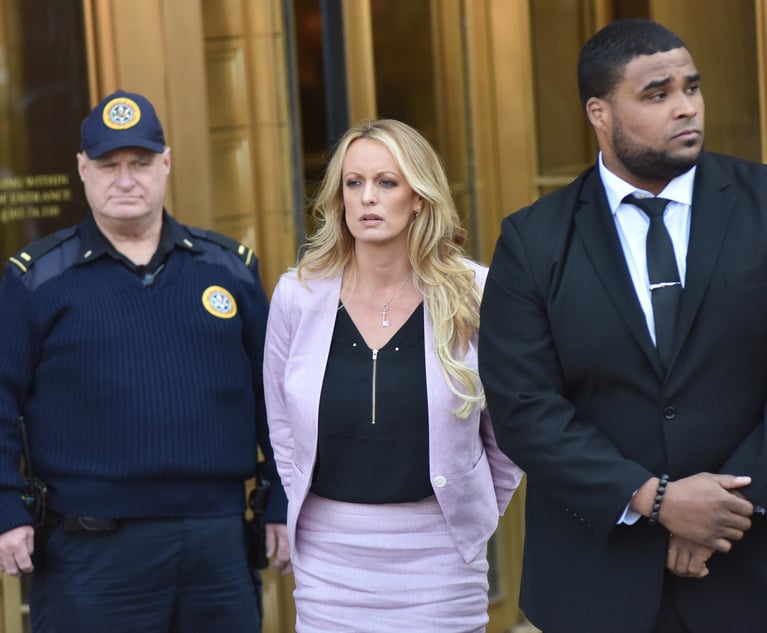The Capital Case That Generated the 'Chip Smith' Instruction
Few are aware of the role that Father Michael McGivney, founder of the Knights of Columbus, played in that case.
January 03, 2019 at 04:11 PM
3 minute read
 Prison bars
Prison bars
Few, if any, names are as well-known in the annals of Connecticut jurisprudence as that of James “Chip” Smith. Even those practitioners who never venture into the bowels of the criminal courts are aware of his name and the seminal holding of the Connecticut Supreme Court regarding instructions to the jury on the deliberative process. Fewer are aware of the role that Father Michael McGivney, founder of the Knights of Columbus, played in that case.
On the evening of Dec. 28, 1880, Smith, in a drunken state, got into a physical confrontation with Ansonia Police Chief Daniel J. Hayes on that town's Main Street. Smith's father had heard that his son was in possession of a pistol and asked Hayes to take his son into custody.
Ironically, Smith had been out drinking that evening with the brother of Hayes. A struggle ensued and Hayes was mortally wounded. Smith was arrested and charged with murder. Among the claims at trial, Smith contended that the fatal wound was from Hayes' own weapon not Smith's gun. After a high-publicity trial in New Haven, Smith was convicted of murder in the first degree in April 1881 and sentenced to die.
McGivney, a parish priest assigned to St. Mary's Parish on Hillhouse Avenue in New Haven, was no stranger to the New Haven jail. He regularly offered support to those imprisoned. He took a particular interest in Smith and extensively counseled him during his incarceration. Smith publicly acknowledged in a press report the efforts of McGivney and Smith's respect for him.
The appeal of Smith's conviction was decided by the Connecticut Supreme Court in December 1881. In affirming the conviction, the court approved a jury instruction given by the trial court which, inter alia, instructed those jurors in the minority position to reconsider their view in light of the views of their majority fellow jurors. Since that day, that instruction, which was somewhat modified by the Supreme Court in 2002, has been known as the “Chip Smith” charge. It is frequently employed when a jury reports it is deadlocked in deliberations.
Smith's execution was set for Sept. 1, 1882. Efforts to save his life by his counsel, including an appeal for clemency to the governor, would be to no avail. McGivney was a daily visitor to Smith during the course of that summer, ministering to his needs. As the date of execution approached, McGivney spent most of his days with the prisoner, who appeared to many to have undergone a dramatic beneficial change in his heretofore surly attitude and had adopted a calm acceptance of his impending fate.
After celebrating mass, Chip Smith and McGivney walked to the gallows together. At 10:30 a.m. on the morning of Friday, Sept. 1, 1882, Smith was executed. In bequeathing his simple possessions, Smith chose to leave the priest a plant which at the time of Smith's death was blooming in his cell.
This content has been archived. It is available through our partners, LexisNexis® and Bloomberg Law.
To view this content, please continue to their sites.
Not a Lexis Subscriber?
Subscribe Now
Not a Bloomberg Law Subscriber?
Subscribe Now
NOT FOR REPRINT
© 2025 ALM Global, LLC, All Rights Reserved. Request academic re-use from www.copyright.com. All other uses, submit a request to [email protected]. For more information visit Asset & Logo Licensing.
You Might Like
View All
The Stormy Daniels 'Hush Money' Trial: Donald Trump Should Be Very Worried
7 minute read
Shining a Light on Opposing Hate: The Palestinian Protesters Who Defended New Haven's Menorah
6 minute readTrending Stories
- 1Munger, Gibson Dunn Billed $63 Million to Snap in 2024
- 2January Petitions Press High Court on Guns, Birth Certificate Sex Classifications
- 3'A Waste of Your Time': Practice Tips From Judges in the Oakland Federal Courthouse
- 4Judge Extends Tom Girardi's Time in Prison Medical Facility to Feb. 20
- 5Supreme Court Denies Trump's Request to Pause Pending Environmental Cases
Who Got The Work
J. Brugh Lower of Gibbons has entered an appearance for industrial equipment supplier Devco Corporation in a pending trademark infringement lawsuit. The suit, accusing the defendant of selling knock-off Graco products, was filed Dec. 18 in New Jersey District Court by Rivkin Radler on behalf of Graco Inc. and Graco Minnesota. The case, assigned to U.S. District Judge Zahid N. Quraishi, is 3:24-cv-11294, Graco Inc. et al v. Devco Corporation.
Who Got The Work
Rebecca Maller-Stein and Kent A. Yalowitz of Arnold & Porter Kaye Scholer have entered their appearances for Hanaco Venture Capital and its executives, Lior Prosor and David Frankel, in a pending securities lawsuit. The action, filed on Dec. 24 in New York Southern District Court by Zell, Aron & Co. on behalf of Goldeneye Advisors, accuses the defendants of negligently and fraudulently managing the plaintiff's $1 million investment. The case, assigned to U.S. District Judge Vernon S. Broderick, is 1:24-cv-09918, Goldeneye Advisors, LLC v. Hanaco Venture Capital, Ltd. et al.
Who Got The Work
Attorneys from A&O Shearman has stepped in as defense counsel for Toronto-Dominion Bank and other defendants in a pending securities class action. The suit, filed Dec. 11 in New York Southern District Court by Bleichmar Fonti & Auld, accuses the defendants of concealing the bank's 'pervasive' deficiencies in regards to its compliance with the Bank Secrecy Act and the quality of its anti-money laundering controls. The case, assigned to U.S. District Judge Arun Subramanian, is 1:24-cv-09445, Gonzalez v. The Toronto-Dominion Bank et al.
Who Got The Work
Crown Castle International, a Pennsylvania company providing shared communications infrastructure, has turned to Luke D. Wolf of Gordon Rees Scully Mansukhani to fend off a pending breach-of-contract lawsuit. The court action, filed Nov. 25 in Michigan Eastern District Court by Hooper Hathaway PC on behalf of The Town Residences LLC, accuses Crown Castle of failing to transfer approximately $30,000 in utility payments from T-Mobile in breach of a roof-top lease and assignment agreement. The case, assigned to U.S. District Judge Susan K. Declercq, is 2:24-cv-13131, The Town Residences LLC v. T-Mobile US, Inc. et al.
Who Got The Work
Wilfred P. Coronato and Daniel M. Schwartz of McCarter & English have stepped in as defense counsel to Electrolux Home Products Inc. in a pending product liability lawsuit. The court action, filed Nov. 26 in New York Eastern District Court by Poulos Lopiccolo PC and Nagel Rice LLP on behalf of David Stern, alleges that the defendant's refrigerators’ drawers and shelving repeatedly break and fall apart within months after purchase. The case, assigned to U.S. District Judge Joan M. Azrack, is 2:24-cv-08204, Stern v. Electrolux Home Products, Inc.
Featured Firms
Law Offices of Gary Martin Hays & Associates, P.C.
(470) 294-1674
Law Offices of Mark E. Salomone
(857) 444-6468
Smith & Hassler
(713) 739-1250












